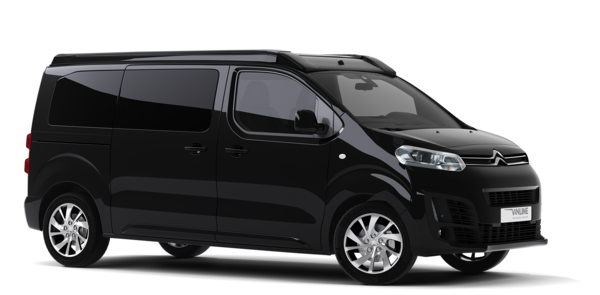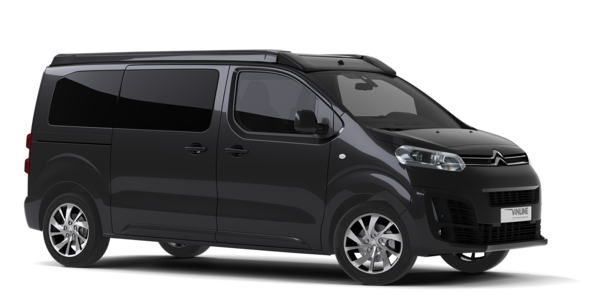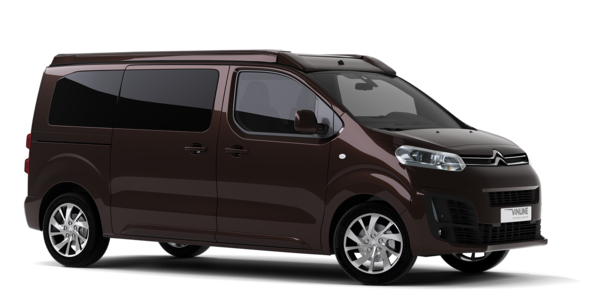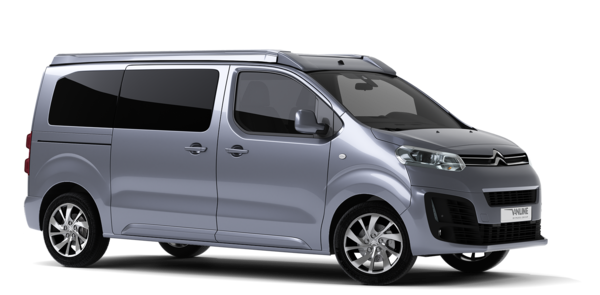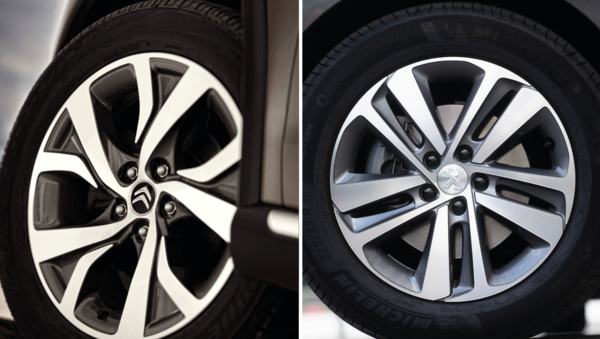Campster
THE ONE FOR ALL
Like the VANSTER, the CAMPSTER: As variable as life itself. But all told, even more tailored for the great, wide world. It caters to every adventurous soul with its furnishings and interior design, not forgetting the removable kitchen* and the sleeping berth in the rear as standard. And thanks to its numerous options such as the auxiliary heating system, cool box and much more besides, the CAMPSTER can be transformed into a compact, yet super comfy motorhome ready for long road trips.
* When driving, the kitchen must be properly secured in place in the vehicle. Only if registered as a passenger car.
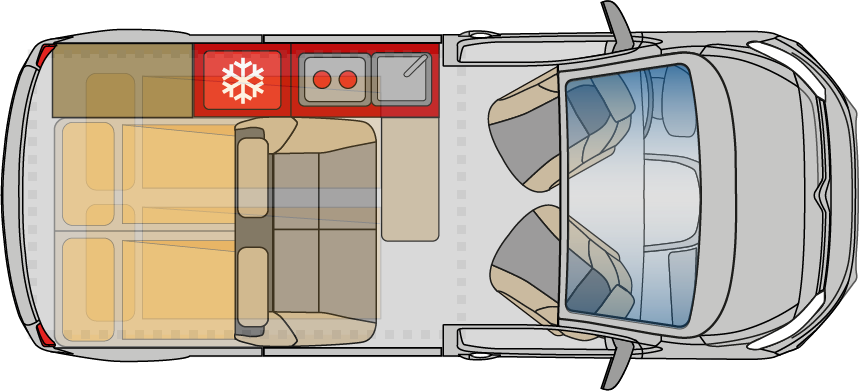
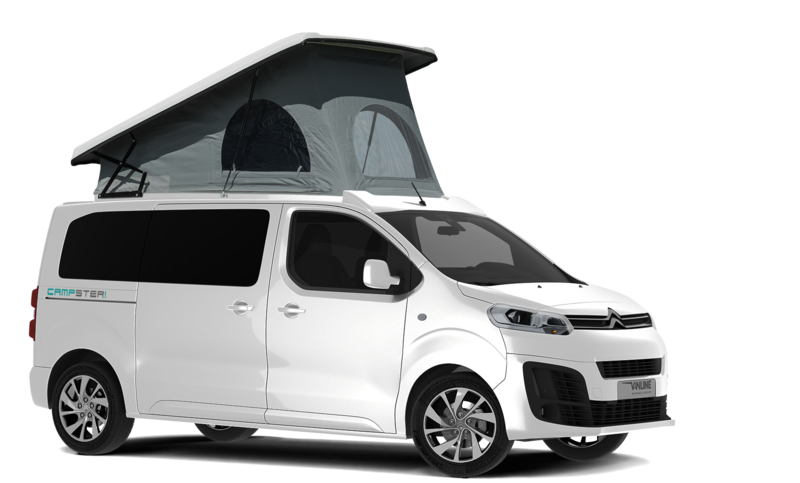
Technical data
| 2.0 l BlueHDI | 2.0 l BlueHDI | |
|---|---|---|
| Start/Stop 145 | Start/Stop 180 EAT8 | |
| Basic chassis | Citroën Spacetourer | Citroën Spacetourer |
| Emission standard | Euro 6D-ISC-FCM | Euro 6D-ISC-FCM |
| Power, kW (HP) | 106 (145) | 130 (177) |
| Transmission | 6-speed manual | 8-speed automatic |
| Top speed | 170 km/h | 170 km/h |
| Lenght (m) | 4.95 | 4.95 |
| Width (m) | 1.92 | 1.92 |
| Height (m) | 1.99 | 1.99 |
| Gross vehicle weight (kg) | 3.100 | 3.000 |
| Mass in running order (kg) | 2.255 | 2.295 |
| Maximum recommended load (kg) | 505 | 505 |
| Seats | 4 | 4 |
| Berths | 4 | 4 |
| Towing capacity, braked (kg) | 1.900 | 1.900 |
| Fuel tank (litres) | 70 | 70 |
| Standard tyres 17“ | 215/60 R17C | 215/60 R17C |
| Fuel economy 1) | ||
| Urban (l/100 km) | 7.7 | 8.0 |
| Extra-urban (l/100 km) | 6.8 | 6.9 |
| Combined (l/100 km) | 7.2 | 7.6 |
| CO2-emissions, combined (g/km) | 203 | 209 |
| Efficiency category 2) | A | A |
1) Fuel economy and CO2 emissions have been determined according to the new Worldwide Harmonized Light Vehicles Test Procedure (WLTP). The more realistic test conditions mean these are frequently higher than the figures measured according to the NEDC method. To maintain comparability with vehicles measured according to the previous test method (the NEDC), the values correlated to the NEDC standard are shown in accordance with the current regulations. Please note that from 1 September 2018, taxes and other possible vehicle-related charges will be assessed based on the figures calculated according to the WLTP. It is therefore possible that the assessment of these taxes and charges will be based on figures different from those stated here. Please consult your authorised dealer for details of your vehicle’s WLTP-based CO2 emissions applied for calculating your vehicle taxes. Fuel economy and weights are always based on the series version and will change depending on the equipment selected.
2) Efficiency classes are used to rate vehicle CO2 emissions based on the vehicle’s kerb weight. Vehicles that correspond to the average are rated D. Vehicles that are better than the current average are rated A+, A, B or C. Vehicles that perform below the current average are rated E, F or G.
THERE‘S SOMETHING TO SUIT EVERY TASTE
Your very own van is available in a whole range of different configurations. From the exterior paintwork, interior design and engine version to the various safety packages.
